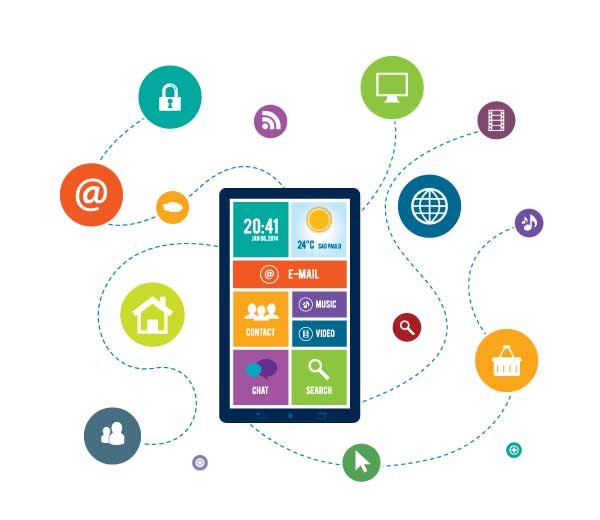
Digital marketing
Digital marketing is an umbrella term for the marketing of products or services using digital technologies, mainly on the internet, but also including mobile phones, display advertising, and any other digital medium.
The way in which digital marketing has developed since the 1990s and 2000s has changed the way brands and businesses utilize technology and digital marketing for their marketing. Digital marketing campaigns are becoming more prevalent, as digital platforms are increasingly incorporated into marketing plans, and as people use digital devices instead of going to physical shops.
Digital marketing activities are search engine optimization (SEO), search engine marketing (SEM), content marketing, influencer marketing, content automation, campaign marketing, and e-commerce marketing, social media marketing, social media optimization, e-mail direct marketing, display advertising, e?books, optical disks and games, and any other form of digital media. It also extends to non-Internet channels that provide digital media, such as mobile phones (SMS and MMS), callback and on-hold mobile ring tones.
In simplistic terms, digital marketing is the promotion of products or brands via one or more forms of electronic media. Digital marketing differs from traditional marketing in that it involves the use of channels and methods that enable an organization to analyze marketing campaigns and understand what is working and what isn't ? typically in real time.
Digital marketers monitor things like what is being viewed, how often and for how long, sales conversions, what content works and doesn?t work, etc. While the Internet is, perhaps, the channel most closely associated with digital marketing, others include wireless text messaging, mobile instant messaging, mobile apps, podcasts, electronic billboards, digital television and radio channels, etc.
Why Digital Marketing Is Important
Digital media is so pervasive that consumers have access to information any time and any place they want it. Gone are the days when the messages people got about your products or services came from you and consisted of only what you wanted them to know. Digital media is an ever-growing source of entertainment, news, shopping and social interaction, and consumers are now exposed not just to what your company says about your brand, but what the media, friends, relatives, peers, etc., are saying as well. And they are more likely to believe them than you. People want brands they can trust, companies that know them, communications that are personalized and relevant, and offers tailored to their needs and preferences.
Manage Customer Relationships Across All Channels
Digital marketing and its associated channels are important ? but not to the exclusion of all else. It?s not enough to just know your customers; you must know them better than anybody else so you can communicate with them where, when and how they are most receptive to your message. To do that, you need a consolidated view of customer preferences and expectations across all channels ? Web, social media, mobile, direct mail, point of sale, etc. Marketers can use this information to create and anticipate consistent, coordinated customer experiences that will move customers along in the buying cycle. The deeper your insight into customer behavior and preferences, the more likely you are to engage them in lucrative interactions.
Challenges Facing Digital Marketers
- Proliferation of digital channels. Consumers use multiple digital channels and a variety of devices that use different protocols, specifications and interfaces ? and they interact with those devices in different ways and for different purposes.
- Intensifying competition. Digital channels are relatively cheap, compared with traditional media, making them within reach of practically every business of every size. As a result, it?s becoming a lot harder to capture consumers? attention.
- Exploding data volumes. Consumers leave behind a huge trail of data in digital channels. It's extremely difficult to get a handle on all that data, as well as find the right data within exploding data volumes that can help you make the right decisions.
Three Keys to Digital Marketing Success
So, what does it take to do digital marketing right? Here are three keys to digital marketing success:
- Manage complex customer relationships across a variety of channels ? both digital and traditional.
- Respond to and initiate dynamic customer interactions.
- Extract value from big data to make better decisions faster.




